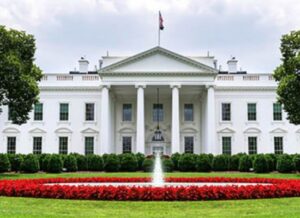
The new year is starting out with much new activity as President-Elect Joe Biden took office on Jan. 20, and the U.S. Senate run-off elections in Georgia resulted in two democratic wins, thus giving democrats majority control of the U.S. House of Representatives, the Senate, and the Presidency.
With this majority, more items are likely to get accomplished in the President-Elect’s tax plan as reconciliation allows tax and spending provisions to move through without a super majority, unlike other non-budgetary items that could be killed on the Senate floor.
Potential Impacts of the President-Elect’s Tax Plan on Auto Dealers
In a fall NAADA webinar, Rick Lazio, senior vice president of Alliantgroup and former U.S. Congressman, and Dean Zerbe, national managing director of Alliantgroup shared their predictions based on their experiences for which items from Biden’s tax plan will affect auto dealerships and their owners, including which measures are likely to pass under a Democratic Senate majority.
Impacts to Businesses that are Likely to Pass:
- Corporate tax rate increase from 21% to 28%
- Tax on book income and international tax
- Expansion of the new market credit
- Job investment credits
Impacts to Businesses that are Less Likely to Pass:
- Financial transaction tax and carried interest
- Elimination of tax preferences for fossil fuels
- Worker classification (may be depend on a California referendum to set precedent)
Impacts to Individuals that are Likely to Pass:
- Restoration of pre-tax cut income tax rates for the top brackets
- Increase of capital gains tax
- Estate tax changes and the repeal of the stepped-up basis rule which would raise rates and lower exclusions
Impacts to Individuals that are Less Likely to Pass:
- Cap of itemized deductions at 28%
- Repeal of SALT limitation – Not likely to get an outright repeal, some limitations possible
- Increase of Social Security tax
Note that these are just predictions and should not be considered as fact as of this writing. Any number of potential changes and circumstances could impact future changes to tax law.
Contact Our Professionals for Help with These Potential Changes
Potential Impacts to Compliance for Auto Dealerships
While President-Elect Biden will appoint new staffers to senior levels, the term rollovers will dictate when and how. Therefore, auto dealerships should prepare now for the following changes in compliance, but it will not be an immediate change following Jan. 20.
Each of the compliance bodies that oversee the auto dealership industry are likely to see an evolutionary overhaul and tightening of compliance under the new presidency. Here’s what you should know:
Consumer Financial Protection Bureau (CFBP) – Under the Obama administration, auto dealerships came under fire for disparate impact credit discrimination from the agency. However, in 2018, the bulletin was disproved because there wasn’t proof of intent to discriminate. Expect to see the CFBP be more active in the Biden administration as one of its architects, Sen. Elizabeth Warren, is likely to be a key player.
Federal Trade Commission (FTC) – The FTC has oversight over auto dealers and auto finance, but because FTC commissioners serve staggered terms, a mix of political parties will remain in place until 2023. However, a more activist FTC should be expected over time as it is likely the Biden administration will appoint left-leaning commissioners.
The Department of Justice (DOJ) – When President-Elect Biden replaces Attorney General William Barr, it is likely his choice will focus in on auto dealers who commit fraud, misrepresent transaction information, or any other federal law will likely see more investigations, enforcements, and criminal proceedings.
State Attorneys General – Your state attorney general is likely to be the most active consumer protection body you will face. It is likely states, with backing from the CFPB, will pursue more claims against auto dealers. Therefore, ensure you have a sound policy and procedure for handling consumer complaints.
In preparation for these evolutionary changes, your dealership should:
- Train and update your employees and policies
- Ensure your privacy notice is sufficient and clearly states your sharing practices
- Adopt and implement the NADA Fair Credit Compliance Program and NADA Voluntary Protection Products policy and program, if not already done
Much is yet to be determined as changes take place in Washington. We will provide updates as necessary to issues with tax and compliance that could impact auto dealerships. Councilor, Buchanan and Mitchell (CBM) offers specialized services to Auto Dealerships including PPP loan forgiveness help. Visit our Auto Dealerships services page to learn more.
Contact Our Professionals for Help with These Potential Changes
Councilor, Buchanan & Mitchell (CBM) is a professional services firm delivering tax, accounting and business advisory expertise throughout the Mid-Atlantic region from offices in Bethesda, MD and Washington, DC.



